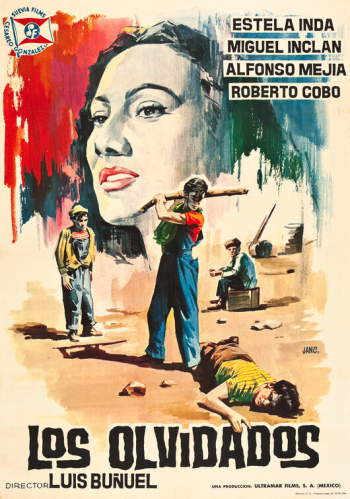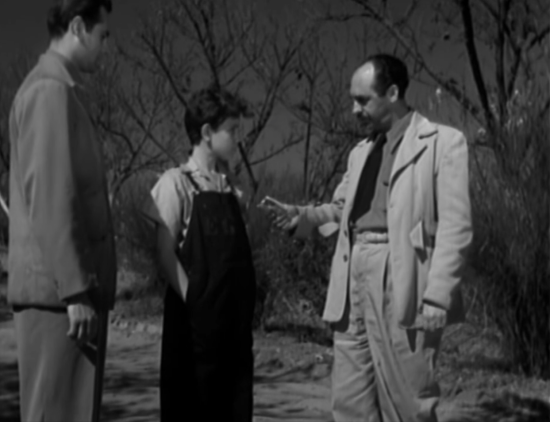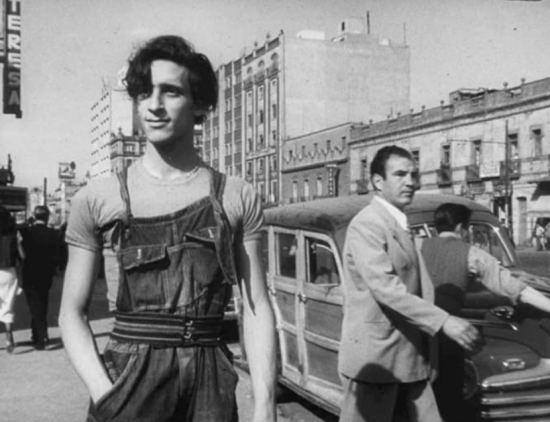Welcome!
Groupthink doesn't live here, critical thought does.
This ad-free website is dedicated to Agnès Varda and to Luis Buñuel. Punk heart still beating.Get cool rewards when you click on the button to pledge your support through .
Thanks a lot acorns!
Your kind generosity keeps the reviews coming!
Luis Buñuel paved the way for a neo-realistic style that would sweep across Europe (and eventually America in the '70s) after Italian Neorealism took hold during World War II. Buñuel’s 1933 doc “Las Hurdes: Tierra Sin Pan (“Land Without Bread") established neorealism’s documentary style, and use of unprofessional actors, to exert an invisible effect of editorial point-making. However, Buñuel had more tricks up his sleeve. Style can be copied; approach and execution cannot.
Having spent the post-World War II ‘40s directing popular “charro” films in Mexico, Buñuel was encouraged by his frequent producer Óscar Dancigers to make a film about Mexico City’s impoverished lost children. Co-written by Buñuel and Luis Alcoriza, “Los Olvidados” (“The Young and the Damned”) remains a towering beacon of social realist Cinema, albeit with a strong dose of dreamscape subconsciousness. Made in 1950 (the same year that Hollywood made “All About Eve”), “Los Olvidados” retains the power to shock its audience due to Buñuel’s unflappable ability to inject contextual clarity about society’s implication in dooming its underclass children to lives of abuse and crime.
Buñuel eschews any sense of politeness, condescension, or patronizing of his characters or of his audience. El Jaibo (Roberto Cobo) is a juvenile delinquent recently escaped from jail who murders the boy he believes ratted on him. Pedro (Alfonso Mejía), a young witness to Jaibo’s crime, is accused of the murder while Jaibo is free to pursue an affair with Pedro’s neglectful mother. Mexico City's impoverished children are exploited by adults at every turn, without exception.
You won’t find any pity in “Los Olvidados,” but you will experience the full effect of Buñuel’s unvarnished filmic system of delivering onion layers of social realism. Think for yourself. You want a deep-dive filmic social study relevant to today, you've got it.
Dig.
It would take another decade before Luis Buñuel would turn his attentions to only making his own films, with "Viridiana" (1961).
Not Rated. 80 mins.











